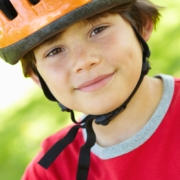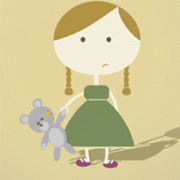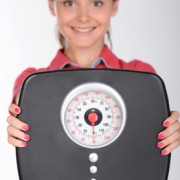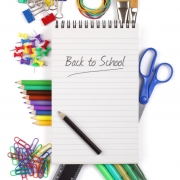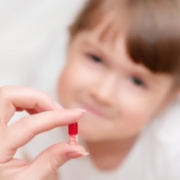Helping our children succeed by allowing them to fail
December 14, 2015
Article at a Glance
- When we are overprotective our children grow up without knowing how to handle setbacks and failure.
- Self-esteem comes from learning how to handle tough problems and being able to recover after failing.
- Children need to have responsibilities and be given the freedom to fail in order to feel real pride in their successes.
Use your head, wear a helmet
November 9, 2015
Article at a Glance
- Helmets are the best way to protect our children from serious injuries like brain trauma.
- Serious accidents can even happen on short trips, so it is important to always wear a helmet.
- When shopping for a helmet, look for one that meets Snell, ANSI, or CPSC safety requirements.
Does my child have a technology addiction?
October 19, 2015
Article at a Glance
- The average American child spends 7 hours a day in front of the TV, computer, phone, tablet, and other electronic devices.
- Parents should be concerned if their child’s technology habit is having negative social, emotional, or educational consequences.
- Establish "no screen" zones and times in your home.
Gun safety: Keeping our children safe
August 24, 2015
Article at a Glance
- Even when taught about gun safety, studies have shown that children rarely respond the way they have been instructed.
- Properly securing your firearms is the best way to prevent accidents.
- Whether you have a gun in the home or not, it is important to teach your children about gun safety because children often encounter guns in the homes of friends and family.
Protecting our children from sexual abuse
April 13, 2015
Article at a Glance
- Reduce your children’s risk by carefully evaluating and limiting (when possible) any time spent in isolated, one-on-one situations with other children, youth, and adults.
- Educating your children about sexual abuse doesn't mean they won't ever become a victim, but it does offer an important line of defense.
- Children who have been prepared will know how to respond to any threats and will feel more comfortable coming to talk to you.
National Child Abuse Prevention Month and Sexual Assault Awareness Month
April 6, 2015
Article at a Glance
- One in six boys and one in four girls will experience some form of sexual abuse before the age of 18.
- In about 90 percent of cases, children are abused by somebody who is known and trusted by the child and the child’s family.
- Be sure to report to the authorities if you suspect child abuse, find child pornography, or if a child discloses abuse to you.
Taking Care of our Children’s Teeth
October 13, 2014
Article at a Glance
- Our dental health can affect our overall health.
- Good dental hygiene should start before the first teeth even show up.
- Even though baby teeth are temporary, they are very important and need to be taken care of.
Dieting at a Young Age Can Lead to Obesity, Alcohol Abuse, and Eating Disorders
September 8, 2014
Article at a Glance
- The younger a girl starts to diet, the more likely she is to have an eating disorder, to be obese or overweight, or to have problems with alcohol abuse.
- Parents should avoid using diets as a way to help their children manage their weight.
- Parents should instead focus on helping their daughters foster a positive body image and teaching them how to make healthy choices.
Back-to-School Checklist
August 4, 2014
Article at a Glance
- Make sure your child is up-to-date on immunizations.
- Notify your school of any special medical needs.
- Plan ahead for healthy lunches.
- Set a schedule that allows for a healthy amount of sleep, nutritious meals, and time for homework and play.
Teaching Your Child How to Swallow a Pill
May 19, 2014
Article at a Glance
- Make sure your child is developmentally ready.
- Start with very small pieces of food and slowly build up.
- Avoid begging, bribing, or threatening. Tension, anxiety, or negative associations will make it harder for your child to successfully swallow a pill.
Article Types
Archives
Sign up to our Newsletter

